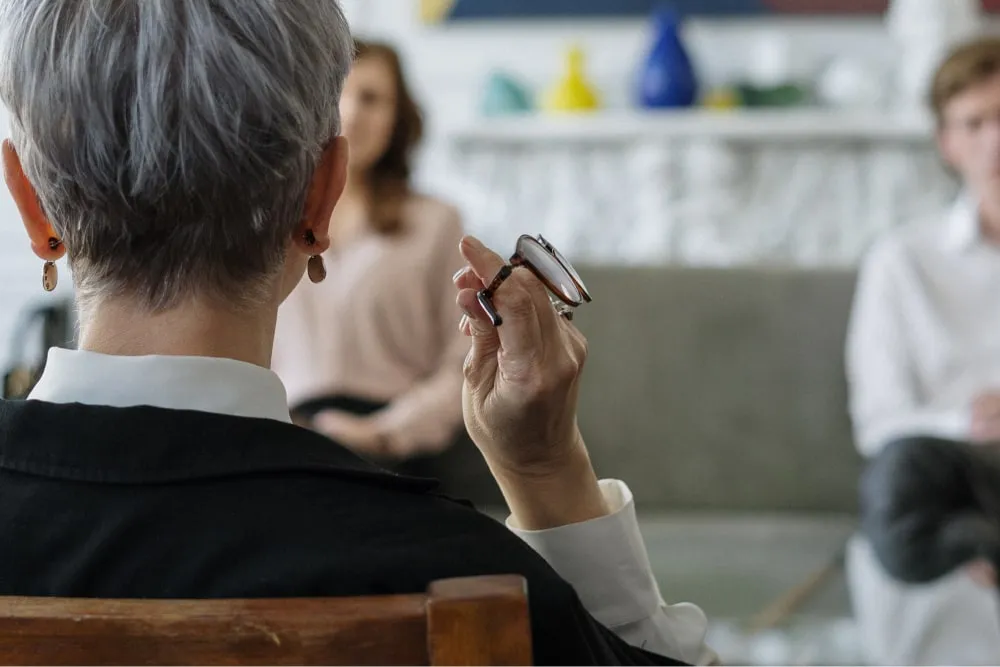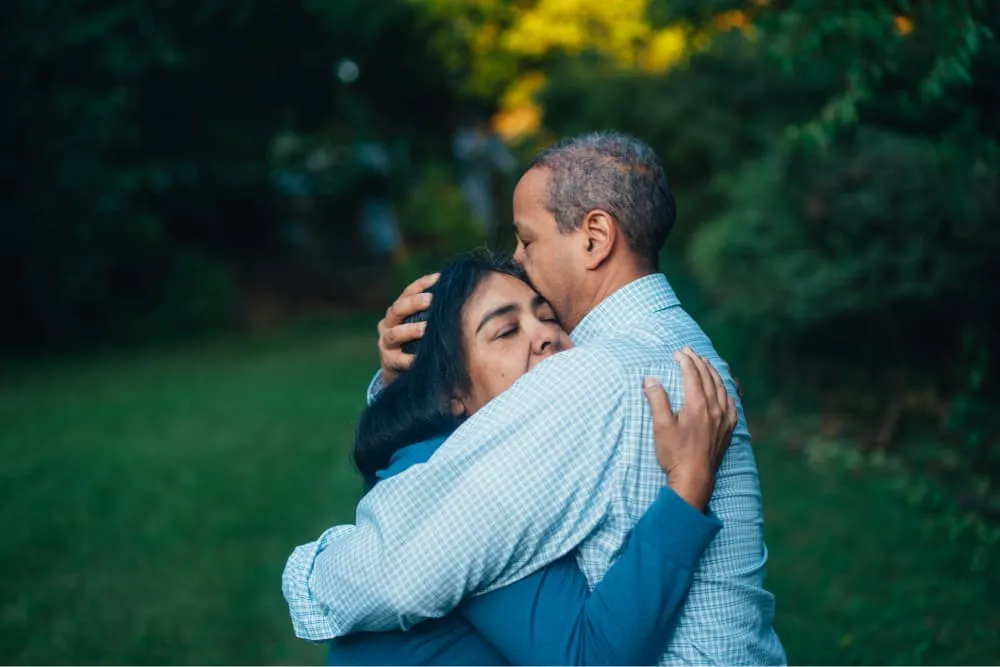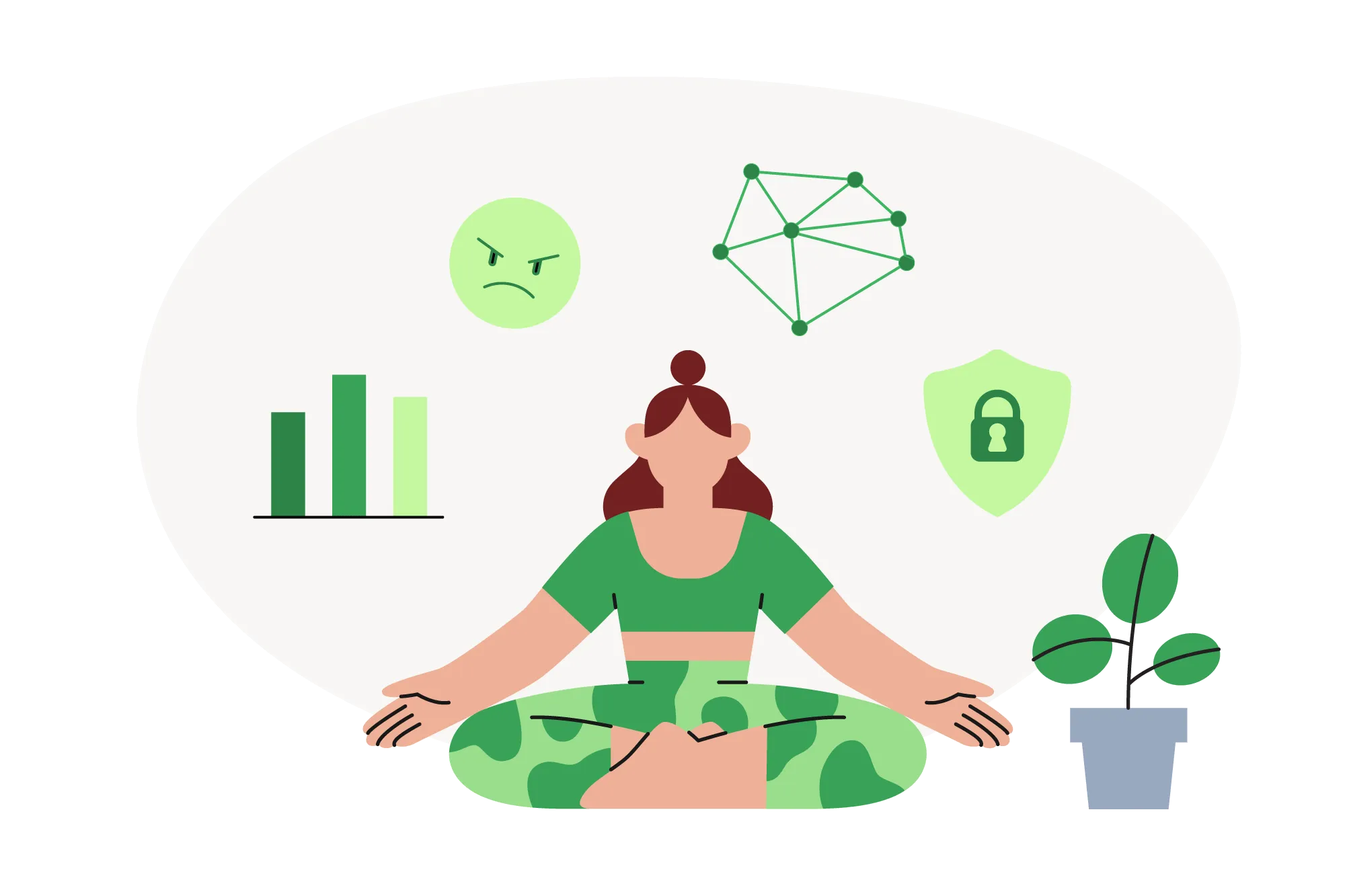Benefits of group therapy over individual therapy for eating disorders
Group therapy may sound intimidating at first. Opening up to one professional in a private setting is difficult enough for some people, let alone discussing intimate issues around many people at once.
The perspective and scale of group therapy have proven to have many benefits that can equal or surpass what is achieved through individual sessions.1,2
Building a community and support network
Group therapy is a great way to help build a sense of community and support, and this can be especially important for issues like eating disorders, which often foster—and thrive in—social isolation.
Attending a group therapy session with others going through similar problems can help someone see that they're not struggling alone. It may help them feel more ready or willing to open up about what they've been dealing with, which can encourage healing. They may adopt a broader perspective on the issue instead of focusing on the pain of their inner world.
Having a
reliable support network can go a long way toward facilitating healing and may also help people maintain long-term recovery. Studies have found that peer support for those with long-term mental health conditions is a crucial aspect of the recovery process.
4 That's why even patients who don't attend group therapy sometimes seek out support groups or other similar meetings. Support groups generally differ from group therapy because support groups lack professionals and are usually peer-led.
Helping with problem-solving
The old proverb "two heads are better than one" can be applied to group therapy and is one of the arguments for the effectiveness of group therapy vs. individual therapy.
Group therapy sessions offer a forum for people struggling with eating disorders and the many social and physical issues connected to them to voice their concerns. Since the group is made up of different people with their own experiences and perspectives, it allows other group members to share their thoughts or advice.
In some cases, a therapist may facilitate these discussions. They may have the group focus on one person's concern or have the group work together to discuss ways to deal with common issues they may be experiencing.
Accountability
Accountability—or owning one's words and actions—is a benefit of nearly every type of therapy. Sharing one's thoughts and actions out loud to another person can encourage them, in so many ways, to take stock of and take responsibility for these thoughts, feelings, and behaviors, which is a foundational aspect of healing.
A greater sense of accountability can help someone become more responsive to others and responsible for their role in their relationships. This can help build both empathy and self-regulation.5
A standing meeting with a therapist can also help develop accountability, holding someone responsible for showing up to these meetings, both for themselves and the therapist dedicating their own time to the session. When other group members are involved, that personal responsibility to show up can be even more powerful.
Accessibility
With therapy options being in high demand and programs having long waitlists, group therapy becomes a more accessible option. Rather than one therapist treating one client at a time, the same therapist can treat around ten clients, who all receive good benefits from the services. This efficiency of time can aid many people.
Exposure to diverse ideas and people
The exposure to the diversity offered by attending group sessions goes hand in hand with the greater possibilities for problem-solving.
Group members all have different personalities, different backgrounds, and different experiences. The group may also be ethnically, religiously, or culturally diverse or be composed of people at various points in the recovery or treatment process.
This can open the door to discussions and ideas someone may have yet to come across within their family or friends. It can also encourage a greater tolerance and acceptance of different people and a greater tolerance and understanding of self.
Feeling accepted and celebrated
Talking about an eating disorder is difficult. There may be aspects of their symptoms people are feeling and experiencing on a profound level that may feel shameful, hard, or even impossible to explain.
Group therapy is typically effective at helping people going through these difficult situations feel more "seen" or understood since they're surrounded by other group members who are going through or have gone through similar things. This can help foster a sense of acceptance.
When well-directed, the group process generally moves through several stages. Around the middle of treatment, group members usually undergo the "norming stage," at which point they feel connected to each other and the goals of the group enough to start taking over much of the "leadership" work previously done by the therapist.2
Feeling compelled to participate in this way, take on these roles, and create this dynamic indicates a strong sense of supporting one another, raising one another up, and celebrating the contributions of all group members, which is one of the most significant group therapy benefits.
Instilling hope and catharsis
Eating disorders are often very isolating mental health disorders. This not only helps hurtful thoughts and behaviors continue to flourish but can work to narrow someone's point of view significantly.
Without other outlets, it can be easy for someone struggling with an eating disorder to become intently focused on their inner world. Often, this world is colored by the pain, fear, guilt, and other unpleasant emotions associated with their eating disorder. And some people may get lost in this world, coming to view their eating disorder and the pain it causes as inevitable.
Opening up to others about their feelings can offer much-needed relief for someone who has lived through these painful experiences for so long. Watching others progress through the recovery journey or hearing from those further along in their recovery can also offer hope that these thoughts and feelings don't have to be forever.
Social skills improvement
Learning new social skills and coping mechanisms is one of the major goals of group therapy—and nearly every form of therapy someone may participate in for an eating disorder. These new concepts can help people move past the habits and behaviors that worked to develop and maintain their condition, and group therapy is a great place to practice these new skills.
Group therapy sessions are meant to provide a safe environment where someone can feel comfortable expressing themselves. This can be especially helpful for patients struggling with
anxiety disorders or other
mental health conditions in addition to their eating disorders. It may also be an incredibly comforting thought for someone that everyone in the program is still learning.
Patients can even announce that they wish to practice a new coping skill in the session or ask other group members to help keep them accountable for their new behaviors. The diversity of groups can once again come into play, helping someone learn to express themselves in front of a wide range of people.
That therapy groups promote social skills is one of the biggest benefits of group therapy over individual therapy.
What are the goals of group therapy for eating disorders?
The goals of group therapy may vary, depending on the specific type of therapy the group is practicing. Still, universally, group therapies will aim to reduce symptoms of the eating disorder and establish a more desirable physical and emotional well-being.
Cognitive behavioral therapy groups may have a different approach than skills-based groups, relapse prevention groups, or groups with other focuses. But overall, as with all types of therapy, the idea is for participants to grow, learn, and heal.
In general, group therapy is aimed at helping facilitate this kind of growth and healing within the group setting. Other common goals of group therapy include:2
- The development of interpersonal and relationship skills
- The bolstering of new coping skills
- The promotion of education related to the issue at hand (eating disorders)
- Behavioral corrections, especially within an interpersonal context
By the time someone finishes a group therapy program, the hope is for them to be able to return to their regular social roles and responsibilities while maintaining their new, healthier attitudes. When people think of the benefits of group therapy, these should all be top of mind.
If you’re unsure who to go to for help, call Within Health. Our caring team of eating disorder experts is here to help and guide you through what remote treatment will look like for you.
Get help > Effectiveness of group therapy vs. individual therapy
One question many people ask about this type of treatment is, "Is group therapy effective?" Some people have difficulty seeing how bringing strangers into a personal and painful situation can improve it. However, the truth is that group therapy often has successful results.
Patients with all manner of mental health conditions frequently report a reduction in symptoms after completing a group therapy program. Group therapy is typically more effective at helping patients gain skills that let them live more easily and comfortably with their condition.2
More research on the specific benefits of group therapy for eating disorders is needed. However, studies have found that these sessions have helped patients reduce binge eating and purging behaviors and also reduce disordered thoughts after treatment.6
Finding help for an eating disorder
Eating disorder behaviors can become dangerous or even deadly, and they don't go away or get better on their own. It’s vital that you get help if you think you (or someone you know) may have an eating disorder.
There are several people you can go to, including your primary care physician, therapist, or eating disorder specialist.
Help is available
If an in-person treatment program doesn't suit your lifestyle, consider remote options. Within offers partial hospitalization and intensive outpatient programs all from the comfort of your own home or wherever you are.
Learn more 







































%2520%2520THUMB.webp)





























%2520for%2520Eating%2520Disorders%2520%2520THUMB.webp)